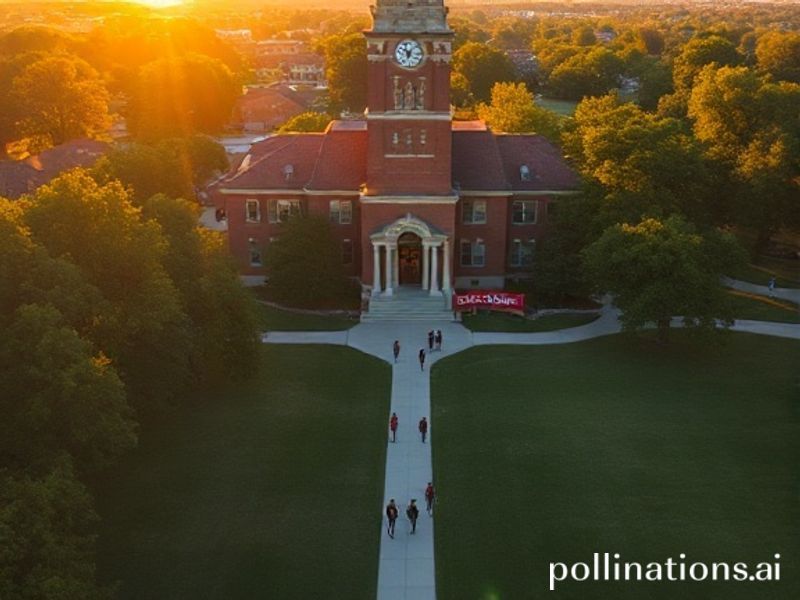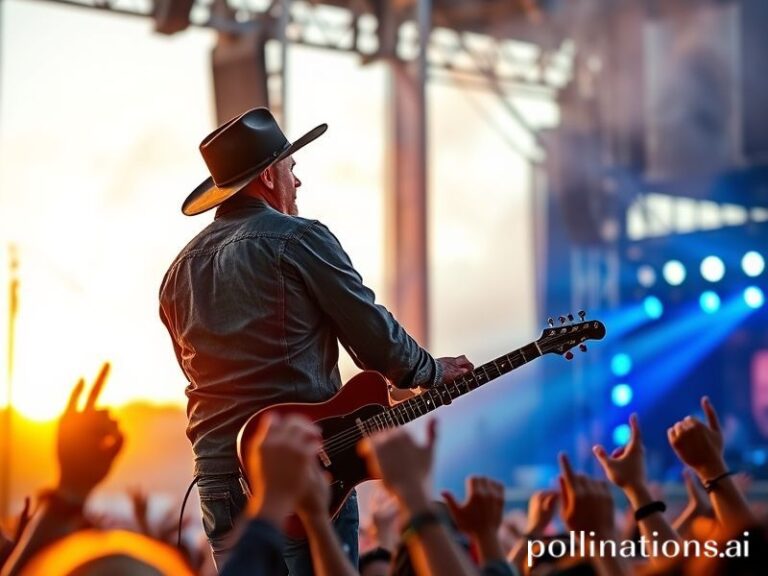Alabama State University: How a Tiny HBCU in Trump Country Quietly Runs the World’s Soft-Power Update
Alabama State University: A Small Campus in the American South That Still Manages to Matter to the Rest of the Planet
By Dave’s Locker Foreign Desk
Montgomery, Alabama – While the rest of the world obsesses over which septuagenarian will next get the nuclear codes, a modest cluster of red-brick buildings on the banks of the Alabama River has been quietly exporting something almost as dangerous: educated Black Americans. Alabama State University (ASU) doesn’t trend on TikTok, lacks a satellite campus in Dubai, and has never produced a Bond villain—yet its 150-year experiment in turning descendants of slaves into chemists, generals, and members of parliament is beginning to look like a geopolitical plot twist no one saw coming.
Founded in 1867 by nine ex-slaves with $500 in loose change and a shared allergy to ignorance, ASU began life as the Lincoln Normal School. Back then, the global order was uncomplicated: Europe stole stuff, America grew cotton, and most Africans were still being told where to sit. Fast-forward to 2024 and the same institution—now a full-fledged university—sends Fulbrights to Ghana, engineers to the Panama Canal expansion, and ROTC officers to NATO bases where they brief White majors on “cultural competence.” History enjoys its little jokes.
The numbers are almost quaint: 4,000 undergraduates, 600 faculty, one marching band so sharp it could invade a small country. Yet scale is deceiving. ASU graduates populate the Nigerian civil service, staff hospitals in the UAE, and sit on Caribbean central-bank boards. Each passport stamp is a quiet rebuttal to the 19th-century notion that melanin and calculus are incompatible. Meanwhile, foreign students—roughly 7 % of the student body—arrive from 42 countries, trading tropical heat for Alabama humidity and discovering that “y’all” is surprisingly versatile diplomacy.
Curiously, ASU has become a minor node in the Belt-and-Bridge games of the 21st century. Chinese grad students study agricultural science here, then take drought-resistant peanut techniques back to Gansu province. The university’s National Center for Nanotechnology Research—housed in a building that used to be a segregated elementary school—now hosts visiting scholars from India who whisper about semiconductor supply chains the way Cold War spies once traded missile specs. Nothing says “post-imperial irony” like a former cotton field churning out patents on flexible microchips.
Of course, the place is still unmistakably American. Football Saturdays feel like a Pentagon weapons expo sponsored by Coca-Cola. The cafeteria serves fried catfish with a side of diabetes counseling, and campus police drive armored golf carts apparently left over from a Michael Bay film. Yet between the marching-band tubas and the sorority step shows, you’ll catch Korean business majors scribbling notes on HBCU endowment models and Brazilian diplomats auditing lectures on civil-rights law like it’s a masterclass in not ending up on the wrong side of a truth commission.
All of which would be merely heart-warming if the world weren’t busy sliding back into tribal fever dreams. From Budapest to Brasília, elected strongmen pine for the good old days when universities were monocultural and critical race theory was just called “history.” ASU’s very existence—multiracial, unapologetically Black, aggressively global—offends every authoritarian nostalgia tour currently on offer. In that sense, the campus quad functions as a small, stubborn antibody in the bloodstream of rising nationalism. Not bad for a school whose original library was a single shelf of used bibles.
The university’s most subversive export, though, may be its marching band, the “Marching Hornets.” They’ve paraded down the Champs-Élysées on Bastille Day (the French looked politely baffled) and opened Carnival in Rio (the Brazilians understood immediately). Each brass note is a reminder that the blues, hip-hop, and by extension half your Spotify playlist, were conceived in places like this—margins that learned to sing loud enough to become centers. If soft power had a sound, it would be a sousaphone riff echoing off the Alabama State Capitol, where Jefferson Davis once took the oath of Confederate president. History really does enjoy its little jokes.
So yes, Alabama State University remains chronically underfunded, its dorms still smell faintly of ambition and mildew, and the Wi-Fi in the humanities building moves at the speed of legislative progress. Yet in a century when democracies are shopping for new operating systems, this unlikely little campus keeps shipping out updated versions of citizenship, slightly buggy but virus-resistant. Call it a security patch for the human condition—delivered, with a wink, from the former heart of darkness itself.







